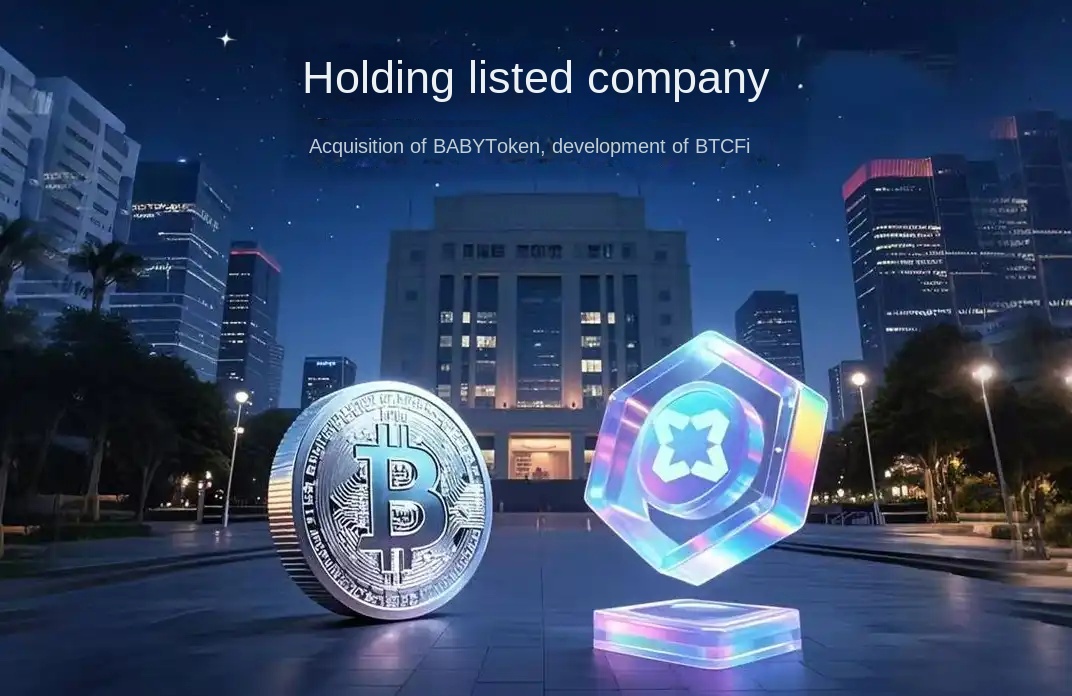Turning to governance apathy, can blockchain really solve the problem of low participation in voting?
Have you ever bought a stock? If so, do you know how to participate in shareholder meetings and vote on company proposals?
Presumably for most investors, the answer to all of these questions is "no". There are many reasons for this, but they can be summarized as follows:
First, for most retail investors, the number of shares they own does not affect the outcome. Shareholders' meeting will almost not appear in the TV drama, the scene of a war of words, more is a kind of commercial acquiescence. Secondly, even if the company has enough shares, even the actual controller of the company, there is still the conflict between the actual controller and the management.
In addition, there is a lack of information about shareholders, with many investors not knowing how to vote on different companies at different times.
In many people's opinion, blockchain projects can effectively solve these problems by issuing governance tokens.
It is normal for a proposal that is not in line with public opinion and unfavorable to ecological construction to have a small number of voters or even a large number of users to vote against it. However, a proposal that is in line with ecological development only attracts a small number of people to vote, which is obviously not a good phenomenon. This is the issue of governance token after the new birth of the problem "governance apathy".
Why does governance apathy occur?
In some ways, governance tokens are similar to stocks but fundamentally different.
According to the white paper or project rules, the purpose of the governance token for most projects is to influence the development path of the project, with the exception of a few projects that charge a certain amount of money. In addition to affecting the development of the company, stock can also obtain the development dividend of the company. Of course, in today's blockchain projects, the value of governance tokens is not too low for projects that are well developed and have good data. It might be logical to conclude that more voting power for governance tokens is needed to capture the value captured by the project.
However, since value can be captured on the existing route, the price of the token can rise. So what motivation do investors have to participate in project governance?
From the proposals of many projects, we can find that every important proposal happens when the project is under pressure from competing products or when the project is developing into a new bottleneck.
In addition to the lack of driving force mentioned above, the reasons for investors' apathy in governance can be divided into two points:
- Voting costs are sunk costs, and there is no guarantee that profits will be higher than costs after voting.
- There are too many items to vote on, information confusion and closed information channels, leading to the majority of people not knowing the voting information.
For most retail investors, the cost of participating in voting is a sunk cost, and there is a very high probability that they cannot judge the price rise or fall after the proposal is passed. If the price of a token could be judged by the passage of a proposal alone, it might be more profitable to buy or sell tokens directly. Of course, the market may also reflect the sentiment of the proposal on the price in advance, causing the price of tokens to fall after the originally positive proposal is passed. All in all, it is difficult to judge the market on the surface of the proposal.
Once the user owns and participates in too many projects, the energy will be scattered. However, voting governance itself does not have a standard, so different project governance proposals and voting will appear on different platforms, which may make the difficulty of user participation rise to a new level.
Of course, just like the flow of mining, a lot of mining has given rise to the "machine gun pool" mining of minerals, and there are also a lot of products on the market that are trying to solve the problem of apapidity of governance voting.
Solution: vote of faith, delegate governance
Decentralized autonomous organization 1HIVE has proposed a "belief voting mechanism" solution. To address voter apathy, they first slowed down the voting process. When users enter the community, they are required to vote 100% of their votes on the existing proposals in the community in proportion to their preferences. At the same time, governance tokens can be implemented in a form similar to ERC-888 to reduce the impact on token liquidity.
Users can transfer their voting rights to another proposal at any time when they want to participate in another proposal. The voting power of the user for the proposal is proportional to the coins held. When the user buys or sells tokens, the system will automatically update the voting weight of the user in the proposal, and the user can check the update at any time.
Read more about the belief voting mechanism"Faith vote: into the dynamic model of the bionic voting mechanism | rhythm research about government a series".
Dex Uniswap, the largest on Ethereum, also faced governance apathy, failing to reach the 40 million threshold for governance votes at one point and twice. To this end, Uniswap launched the governance product Sybil.
Sybil allows users to delegate token governance to other users, a move that solves the problem of governance apathy once and for all. Delegated users can authenticate their account through Twitter to further show themselves to the delegator and maintain communication with the delegator. Allow active or high-quality community members to translate influence into voting rights, and allow marginalized token holders to participate in governance in a representative way.
At the time of writing, Sybil only supports Uniswap, Compound, Aave, Pooltogether and Radicle delegated governance.
About Sybil, readSybil: An Introduction to Uniswap's Optimal Solution | Project for Community Governance Apathy.
Project Led supports more project mandates than Sybil, which also works on governance. Compared to Sybil, Tally is more informative, with access to the information of many active voters and the history of proposals, and users can vote on proposals through Tally. In a word, Tally is more like a governance vote aggregator.
Of course, it looks like Tally is the best of many platforms, and to that end, Led is willing to help it grow. It started with $50,000 from the UNISWAP grant program. In March, it secured $1.5 million in funding from Notation Capital, Castle Island Ventures, 1KX, and Lemniscap.
At press time, Tally has supported delegated governance for dozens of projects, including Uniswap, Compound, Gitcoin, and FEI.
At present, there is still no solution to the apathy of governance
Although various problems of governance apathy have been mentioned above, it is obvious that the problem of governance apathy has not been eradicated. For example, Radicle, Unslashed, BProtocol, Gitcoin and other voting participation rates are only in single digits. The participation of UNISWAP, INVERSE, FEI and other projects did not exceed 20%.
Faith voting requires a vote from the very beginning, but the proposal is not a one-time thing, it's a progressive process. That means voting will also be a progressive process. As bills keep coming up, they need to keep going to the polls. 1Hive believes that in order to motivate community founders to continue to participate in community initiatives and voting, founders' locked tokens will be unlocked based on their contributions to the community. However, there will be a day when tokens will be fully unlocked.
In addition, there is another issue with the faith vote, is the value of the governance tokens of participating and non-participating voting consistent for items that have not previously been subject to a faith vote? Even if shadow tokens can be mapped, can the liquidity problem between the two under the severe market conditions be solved?
To take an example that is not appropriate but logically similar, participating in the Ethereum 2.0 pledge to map the price of Beth to be lower than that of ETH, there is a 5% price difference between the two. Because ETH can participate in the pledge to be converted into Beth, otherwise not. Participating in the Ethereum 2.0 pledge is profitable, and there is an upper limit to the amount of ETH pledged. Once the yield of the pledge soars, it may cause Beth to premium ETH.
Of course, belief voting has not yet been tested in large communities, so it remains to be seen whether it can address governance apathy.
Proxy voting projects represented by Sybil and Tally can reduce information disparity and voting costs to some extent, but they clearly cannot completely solve the problem of governance apathy.
On Sybil, the people who look at delegating voting rights are mostly the whales that hold governance tokens, as A16Z, a top VC, once didOn Crypto Governance"We are a strong supporter of the delegated system, and we are committed to delegating the majority of voting power in Compound, Uniswap and other networks to qualified participants," it said.
Before the proxies came into being, whales like A16Z were themselves active governance token holders.
Users involved in the Tally are likely to be more active, given the potential for an airdrop behind it. Some users believe that airdrops can solve the problem of governance apathy, but airdrops are more of a one-time solution.
Just like GitCoin, the number of people participating in the donation gradually increased before the announcement of the airdrop of governance token. After Gitcoin set up Trust Bouns, the number of participants began to decline. Trust Bouns is a Trust mechanism that mitigates attacks by witches. Gitcoin will start the latest donation activity after the airdrop on June 17. You can observe the rate of the number of users participating in this donation significantly decreased compared with the last one.
Assuming that Tally issues governance tokens, it will still benefit the whale, which holds a large number of other project governance tokens. This is just another form of Proof of Capital.
Welcome to join the official BlockBeats community:
Telegram Subscription Group: https://t.me/theblockbeats
Telegram Discussion Group: https://t.me/BlockBeats_App
Official Twitter Account: https://twitter.com/BlockBeatsAsia
 Forum
Forum OPRR
OPRR Finance
Finance
 Specials
Specials
 On-chain Eco
On-chain Eco
 Entry
Entry
 Podcasts
Podcasts
 Activities
Activities









